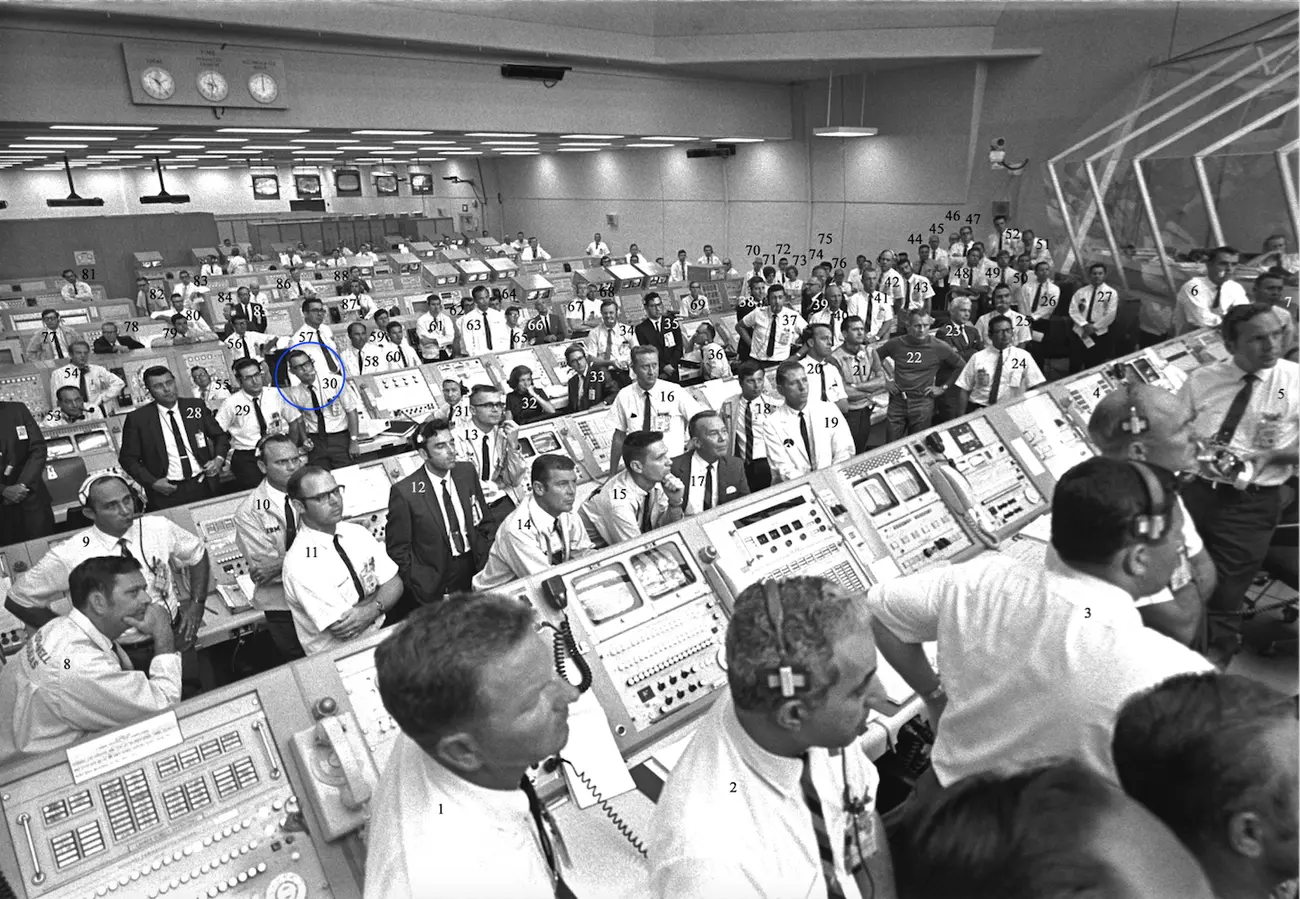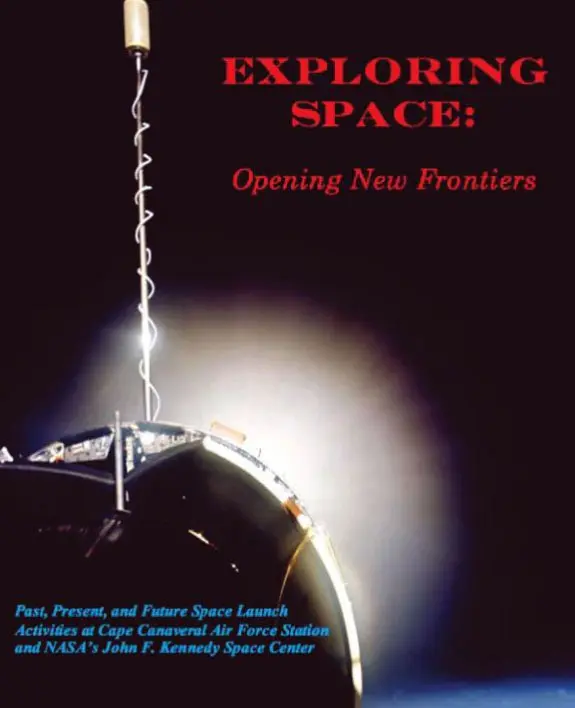The Apollo 11 spacecraft launched from Cape Canaveral on July 16, 1969. Four days later, humans walked on the surface of the moon for the first time.
A team of thousands was required to make that lunar mission a success. Dr. Al Koller was a member of that team, working in the Firing Room.
“I served as the remote eyes for the top management of NASA and the stage contractors for the operations at the launch pad three miles away,” says Koller. “We did that using sixty-one video cameras, all black and white, mounted on the pad service and at all key levels of the 363 foot-tall launch tower. My job was to direct the camera crew by selecting the right cameras to keep track of the key technical work underway and to provide the best possible video views of any troubleshooting taking place.”
Koller was still in high school when his family moved to Titusville in 1958. He started working in the aerospace industry at the age of 17, when he had the opportunity to work with rocket pioneer Wernher von Braun.
“My father was involved in aviation and space from the early days, and when we moved to Florida I was in my senior year of high school, and they had a science fair,” says Koller. “I placed well in that, and out of that came a job with the Army Ballistic Missile Agency, which was the group that had a launch center here, essentially for von Braun’s rocket team.”
The next year, the rocket operation was transferred to NASA, and Koller along with it. After returning from college, Koller worked his way up from being a NASA technician to being a staff engineer. His 32 year career with NASA included work on both the Apollo and the Space Shuttle programs.
“I got to lead the group that wrote and published the environmental impact statement for the space shuttle at the cape,” says Koller. “We’re launching rockets from the middle of a wildlife refuge, one of the country’s largest and most diverse. I worked with a lot of really talented people.”
Prior to his retirement in 2013, Koller led the creation of SpaceTEC, the National Science Foundation’s Center for Aerospace Technical Education.
Koller is author of the new book “Exploring Space: Opening New Frontiers,” available from amazon.com. The book explores the past, present, and future space launch activities at Cape Canaveral Air Force Station and NASA’s John F. Kennedy Space Center.
“Coming out of World War II, we were able to bring with us the remnants of the German rocket team,” says Koller. “They came to us rather than go to the Russians, and we immediately became involved in a space race with the Russians, post war. By 1948-49, our government was looking for where it would launch from. They were already launching rockets in White Sands, New Mexico, for example. They had a base in Texas, and they were looking for how you would launch big rockets.”
Cape Canaveral, Florida was selected as the launch site for America’s space program.
“In our area was the Banana River Naval Air Station, so we already had land here, government land with infrastructure in place,” says Koller. “Because we’re on the east coast of Florida, we now have launch over water for a vast area. We can go downrange for thousands of miles and not overfly land. We’re on the outside of the spaceship Earth, moving at a thousand miles an hour, so if you launch from Florida, close to the equator, and you launch to the east, you already have a thousand miles an hour of orbital velocity to work from.”
Today, independent commercial companies are partnering with the government more than ever before to move America’s space program forward.
“What they won’t do or can’t do, the government will, and what the government doesn’t have to do, they will do for us,” says Koller. “It’s a much broader program, and I think it’s about to really blossom. People like you and I will have the chance to go into space if we want to do it. All you need to have is a lot of money. It’s coming.”

